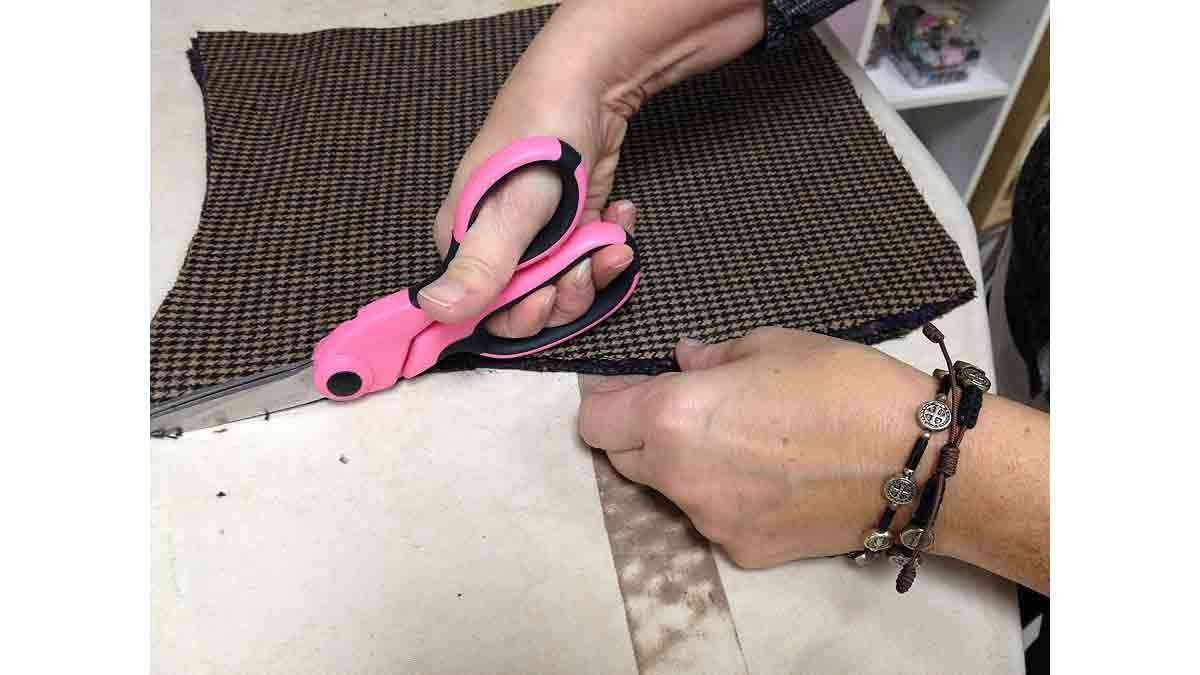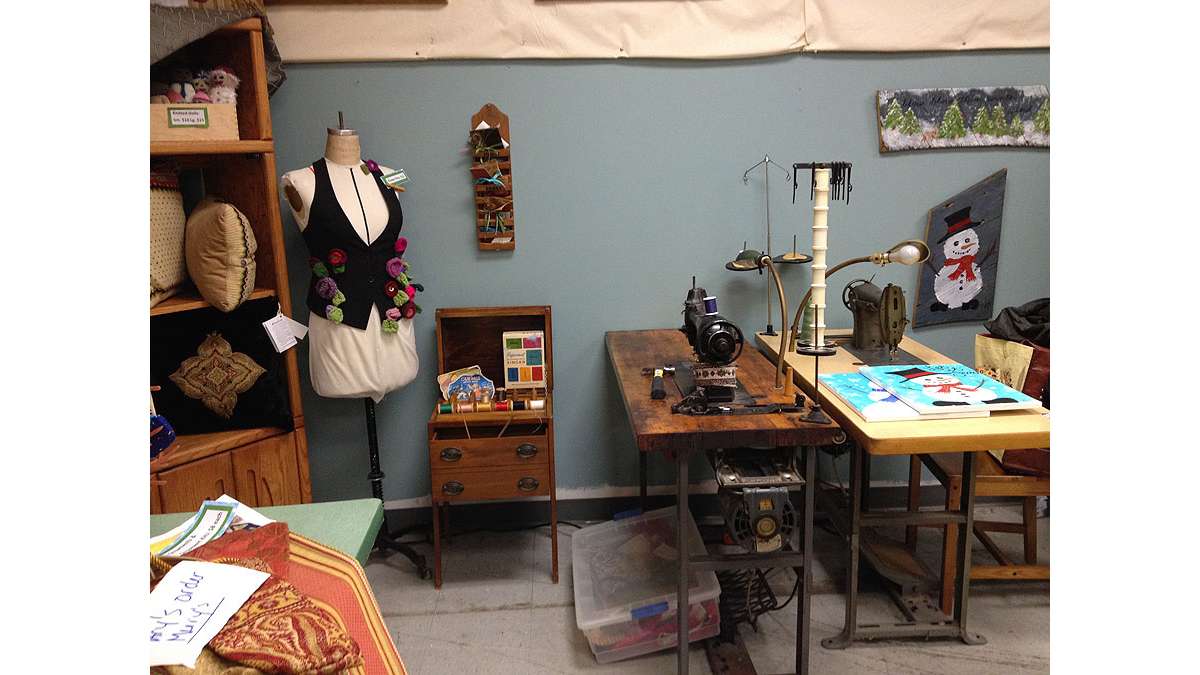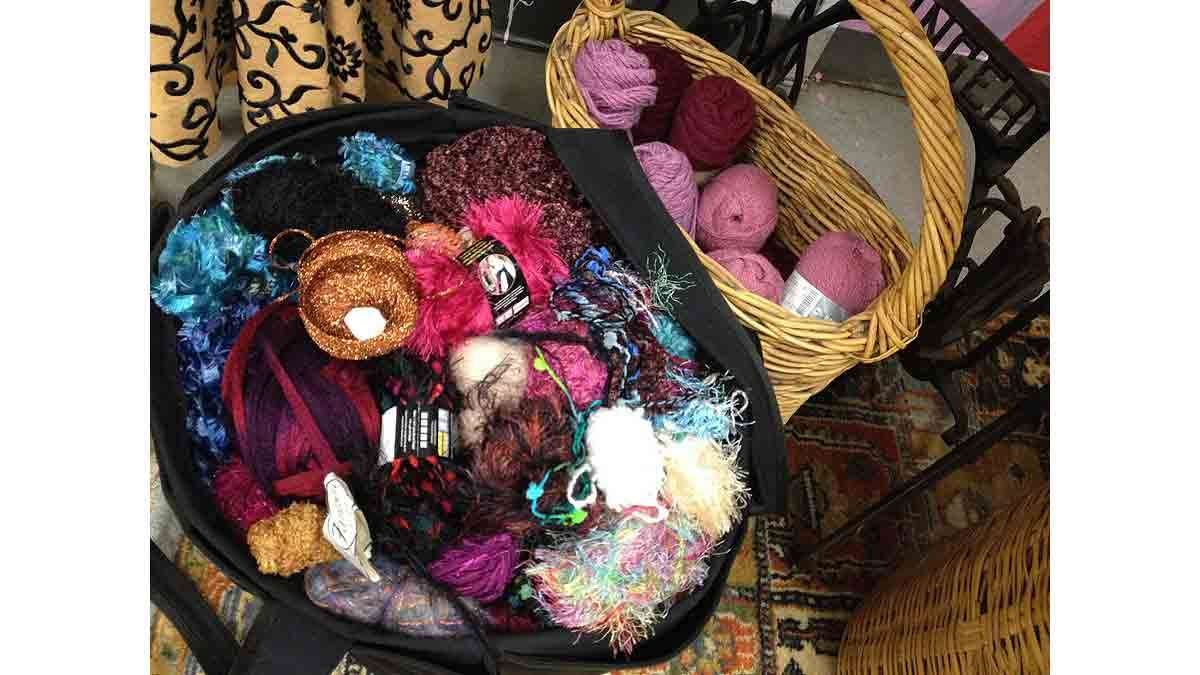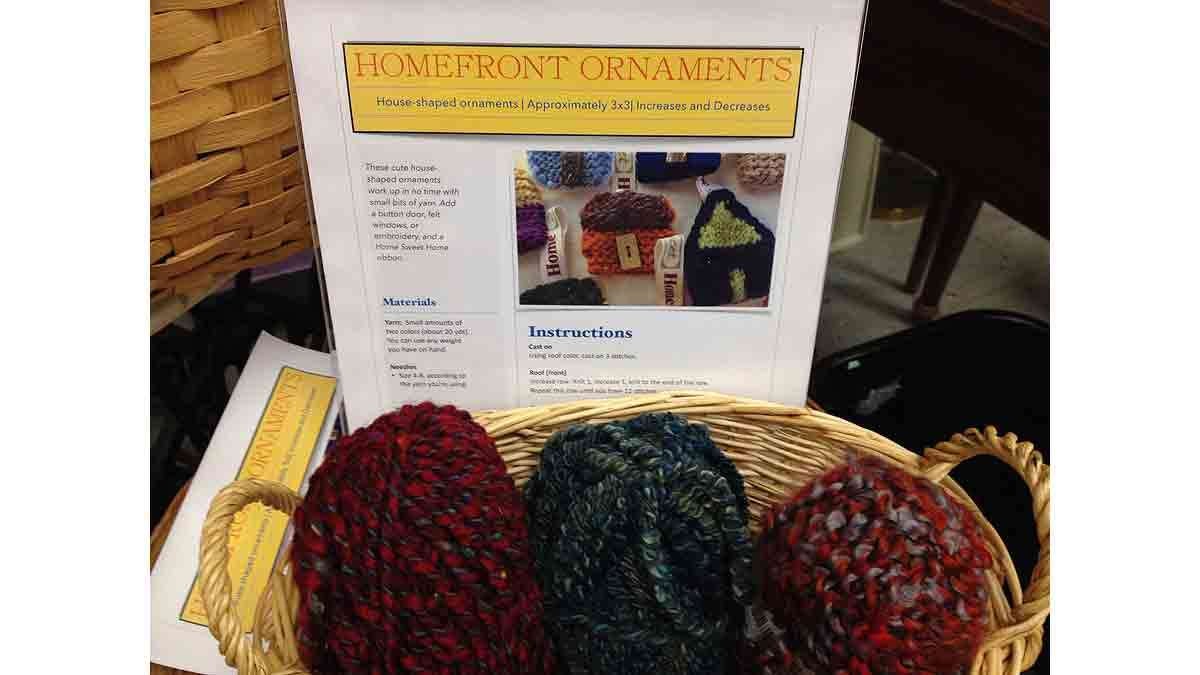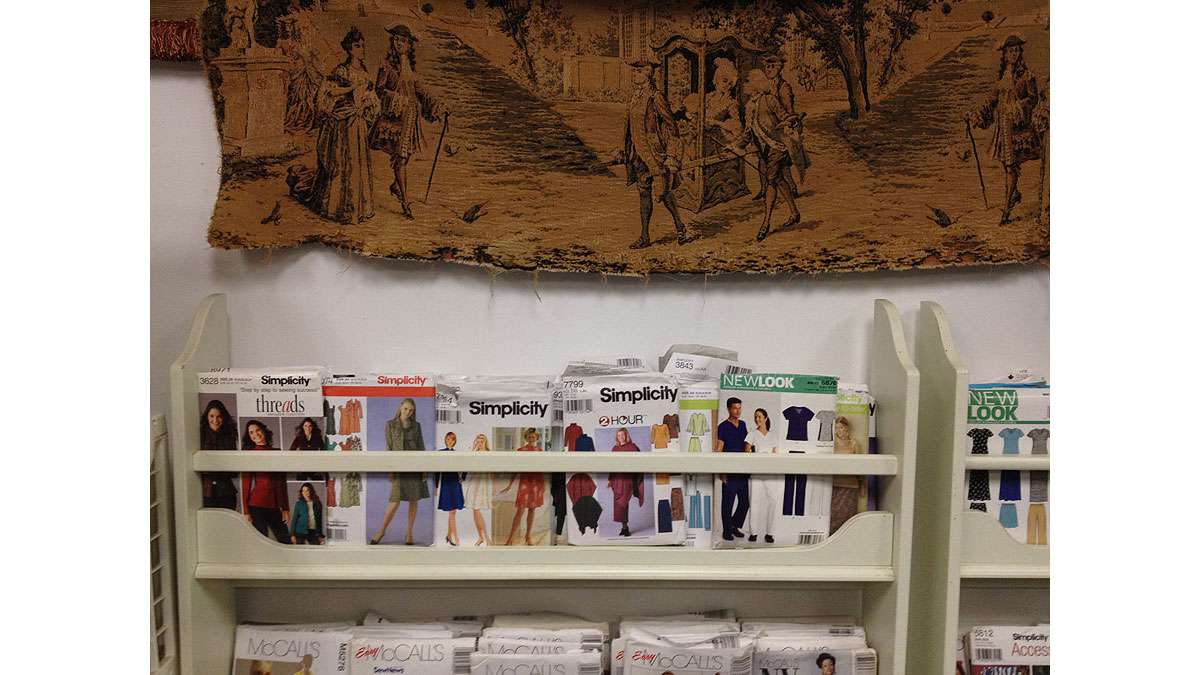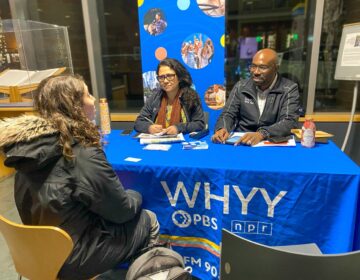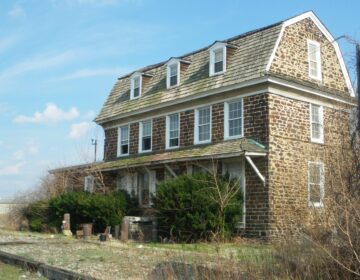Non-profit uses sewing to teach life skills
Ruthann Traylor peruses the loading dock at HomeFront’s facility in Lawrence Township in New Jersey. During the holiday season, when residents of surrounding communities are feeling particularly generous, the loading dock fills with treasures—beautiful wooden dining room sets, china closets and chests of drawers, headboards and sofas. These all become available in HomeFront’s free store, where clients can pick out what they need to furnish the living space HomeFront helps them find. HomeFront has been seeking to end the cycle of poverty and homelessness and help families become self-sufficient for 25 years.
Traylor finds two wreaths with ruby red cranberries. She is seeking to create a welcoming ambience at Sewing Space, one of Homefront’s programs.
Sewing Space will hold an open house Saturday from 9 a.m. to 1 p.m. HomeFront clients’ and volunteers’ handmade items will be for sale, from handbags, wine totes, pillows and stuffed animals to aprons, Christmas stockings and table runners.
Traylor started sewing space three years ago, thanks to generous donations of fabrics, sewing machines and notions, and the magnificent wooden cabinets in which to store it all. Through the program, clients learn to sew curtains and tablecloths that can be used in their homes, as well as wine sacks and tote bags that can be sold, earning a small income that is split by the client and HomeFront. They learn merchandising and business skills, math and language skills, all while deriving pleasure from having made something by hand.
In the days leading up to the open house, the Sewing Space studio was teeming with volunteers, sorting and cutting fabric, putting together materials that the production sewer can work on. Sewing teacher Jody Malloy, who has a background in children’s wear and dolls’ costumes, worked as a seamstress while raising her own children. She made slip covers and did alterations, and is helping to empower the young female HomeFront clients to do the same. “It’s a great way to make money while working at home,” she says.
A generation ago, every home had a sewing machine, but today few homes have one—the prior generation de-accessioned their Singers, Kenmores and Berninas at HomeFront’s loading dock. Yet there is a need for buttons, hems and repairs. Malloy tried to teach her own children these valuable skills, but found they had little interest. “I love coming here and seeing new faces who are eager to learn my tips,” says Malloy, who loves that some even want to do hand stitching.
Malloy starts with the basics: teaching students to get to know the machine, putting paper through to learn the stitches.
In addition to working with the many fabrics donated, volunteers creatively upcycle donations of gently used clothing and tablecloths. Malloy found a hand-crocheted white tablecloth that had a hole. She salvaged the good parts to make pillow covers.
Cordoned off by a row of bureaus containing the carefully sorted fabrics is an area filled with industrial machines mounted on stands. This is where Terri Farkas works. She started as a HomeFront client, and is now employed one day a week as a production sewer. She also fulfills custom orders for pillow covers and table runners. “Even when I was not required to be here I kept coming,” she says of the joy she finds in her work.
In addition to selling at the open house, Sewing Space has set up tables at craft fairs in the area, and some of the volunteers approach stores on both sides of the river to carry some of the merchandise. It is a challenge to find the right balance of what clients can produce in a reasonable amount of time that will also sell well—the wine totes, with appliques of a goblet, for example, are good sellers. People fill them with wine and give them as hostess gifts.
“I want to use a skill I have and do something for others,” says Jane Fetter, a textile artist and retired teacher. “I am amazed by the creative new ideas sparked here.” She holds up a pillow that is made from an upcycled sweater, and an adult clothing protector (bib) that the group produces in bulk for nursing homes. “With the upcycled clothing, we show clients how they can get something from the free store and make it more interesting.” A wooden rack is draped with silk ties that will be used to make handbag straps or rosettes.
Traylor, who also runs the ArtSpace program at HomeFront’s Ewing campus, has worked with manufacturers who donate odd lots, including wedding dresses and evening gowns. “Our 2017 goal is Furnish the Future,” she says, describing plans to hire another sewer for alterations and custom work. “The open house will show how we work.”
The loading dock manager describes a donor who wanted to give chairs and inquired whether they could be re-upholstered, but Sewing Space is not set up to do this. “The stuff that comes in through the loading dock is endless,” says Fetter. “Your imagination is the only limit.”
SewingSpace will hold an open house at its facility at 1880 Princeton Avenue, Lawrence (near the Brunswick Circle), Dec. 10, 9 a.m. to 1 p.m. Handmade items will be for sale.
WHYY is your source for fact-based, in-depth journalism and information. As a nonprofit organization, we rely on financial support from readers like you. Please give today.


